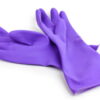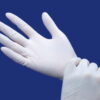Veterinary surgeries need to be as well equipped as any doctor’s surgery. They have to be ready to deal with just about anything and there are several bare essentials which any vet should have to hand.
Water
All vet practices should have a freely available source of fresh, running water. They should have the capability to provide fresh drinking water to all of their patients, no matter how long the animal is in the practice for. The vet will also need to be able to wash their hands before and after handling each patient and especially before and after performing any surgeries.
Sterile gloves
One of the essentials of any veterinary practice is to have a well-stocked supply of sterile gloves to hand. The wearing of sterile gloves protects the wearer from any infections the patient may be carrying. Sterile gloves in particular also prevent any contaminates from the vet’s skin being passed to the animals. They are essential when performing surgery on animals or examining any open wounds the animal may have.
Syringes
Any vet’s practice should also be well stocked with a variety of syringes and a range of needle sizes. Vets will need to administer any vaccinations or anaesthetics through a syringe.
Scales
Veterinary surgeries should also have a reliable set of digital scales in each examination room. Knowing the exact weight of an animal can help a vet determine its health and age, if unknown. The amount of medicine to be administered is also often determined by its size and weight, so knowing this is vital to ensuring the correct dosage is given.
Food
Another essential for any veterinary practice is food for their patients. Animals that are admitted for a period of time will, of course, need feeding. Having small treats around in examination rooms can sometimes be advantageous too as it can encourage good behaviour from the animal when they’re being examined.
Cleaning supplies
A vet’s practice should always have a well-stocked supply of anti-bacterial cleaning products. Making sure examination rooms and operating theatres are disinfected and cleaned after each use is essential to manage the risk of contaminations. Equipment, table tops and the floor should be thoroughly cleaned at the end of each day or after each use to ensure high hygiene standards.



Add comment